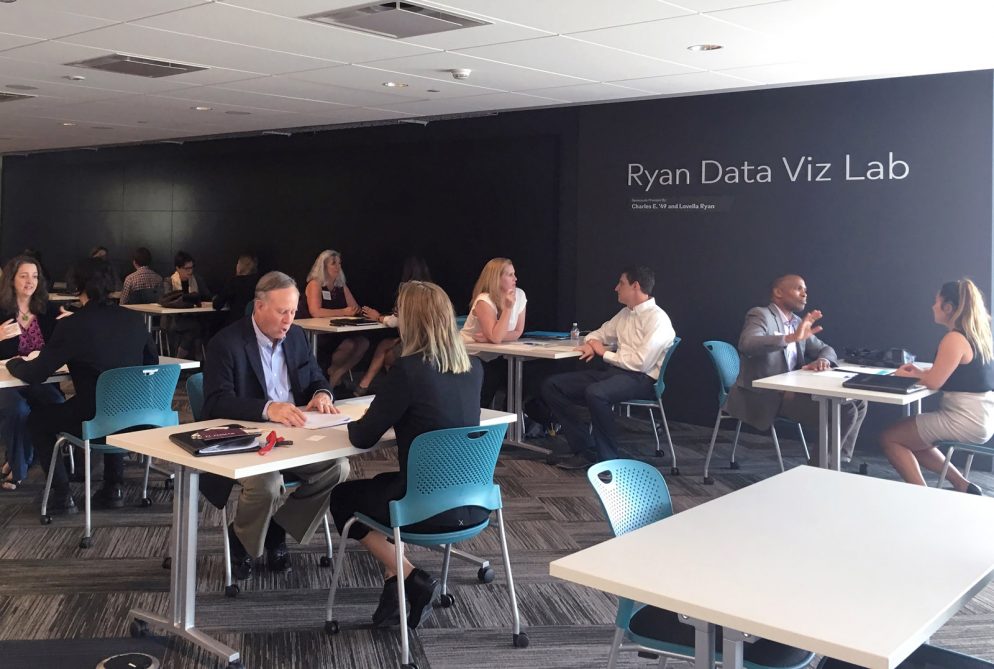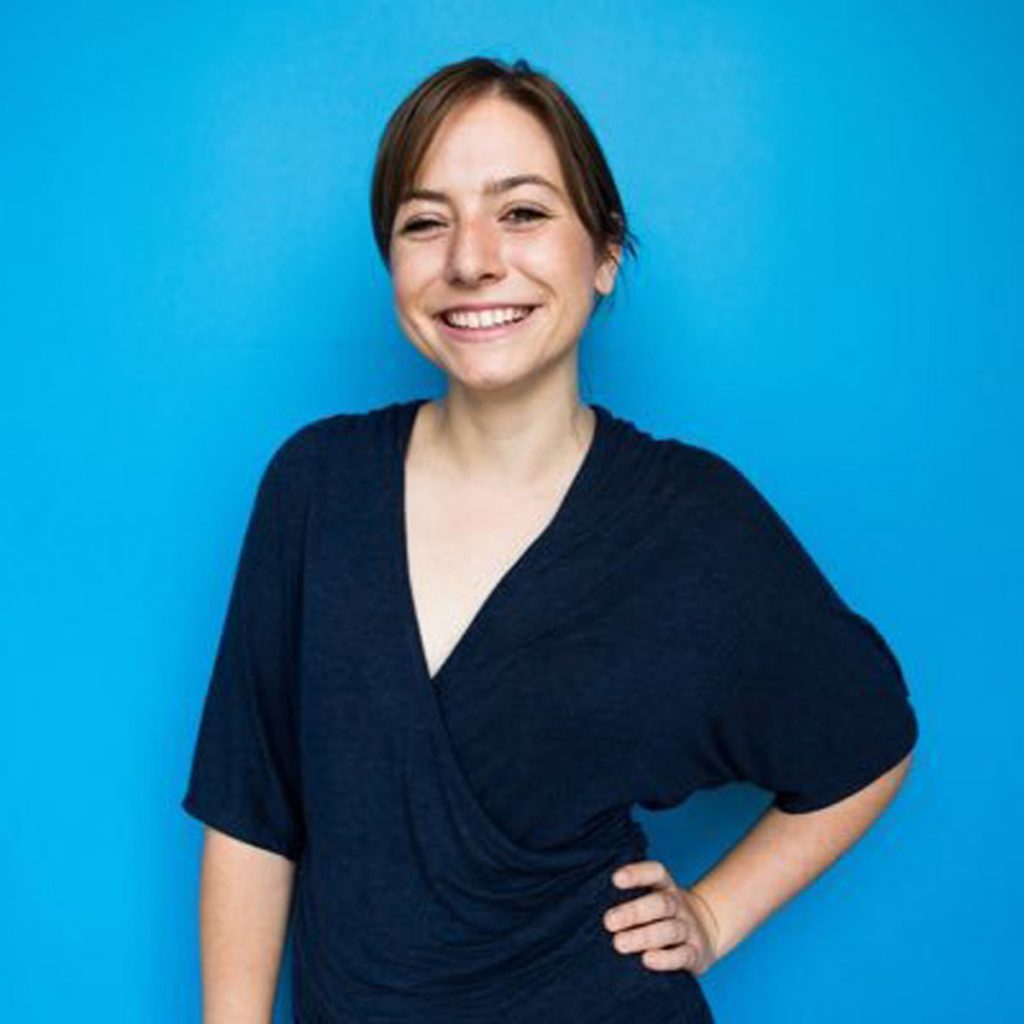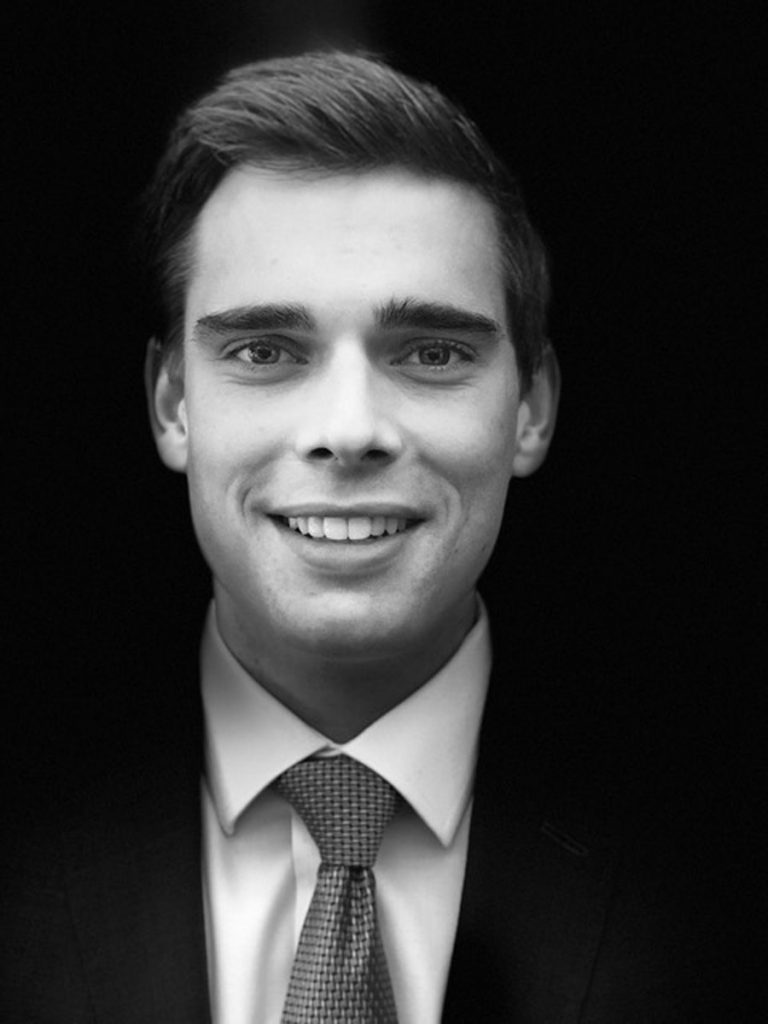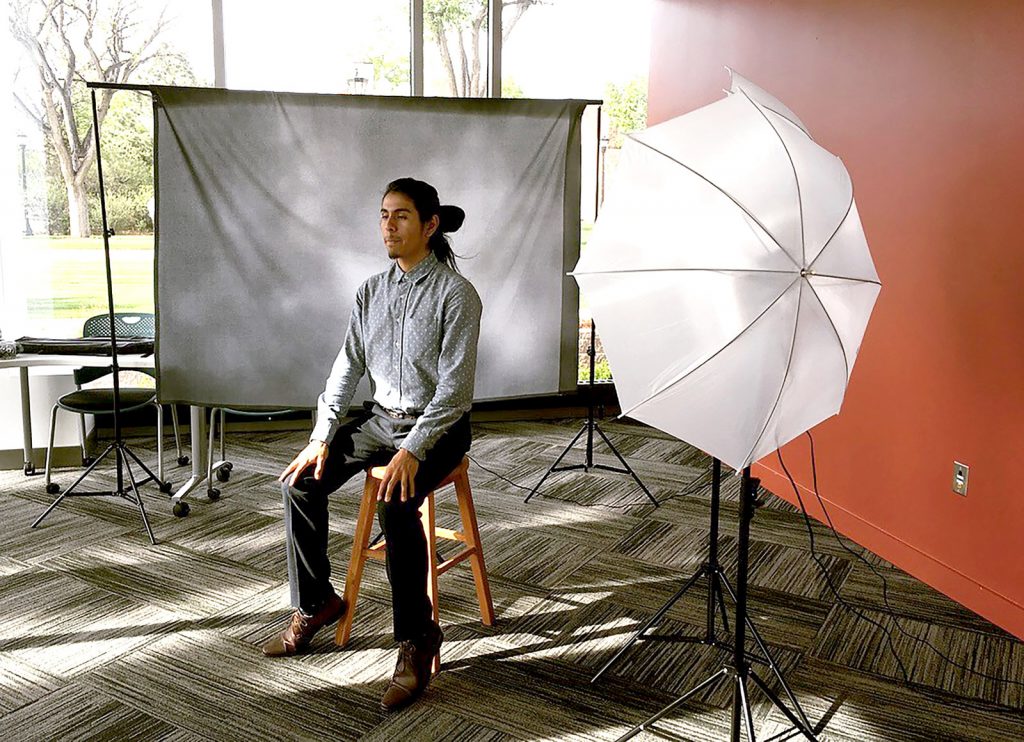The Block Plan inspires students to take risks, solve problems, and pursue purposeful work in the world. CC students, and subsequently CC graduates, take with them experiences that broaden their horizons, deepen their insights, and develop their capacity to identify and follow their passions. Graduates leave campus with knowledge and skills that will empower them to tackle exciting challenges as they move on to be inspired members of diverse communities in a changing world.
CC is working to better support and guide students as they integrate their educational careers with the opportunities that follow. By enhancing support for students during their transition from CC, the college aims to help students become synthesizers, making connections and fostering critical relationships as they forge on into their futures.
“I am constantly using problem-solving skills; problem solving and critical thinking, those things are so important,” says Beka Adair ’16 of her experiences following CC. “There are two of us on staff and we are just constantly figuring things out.”
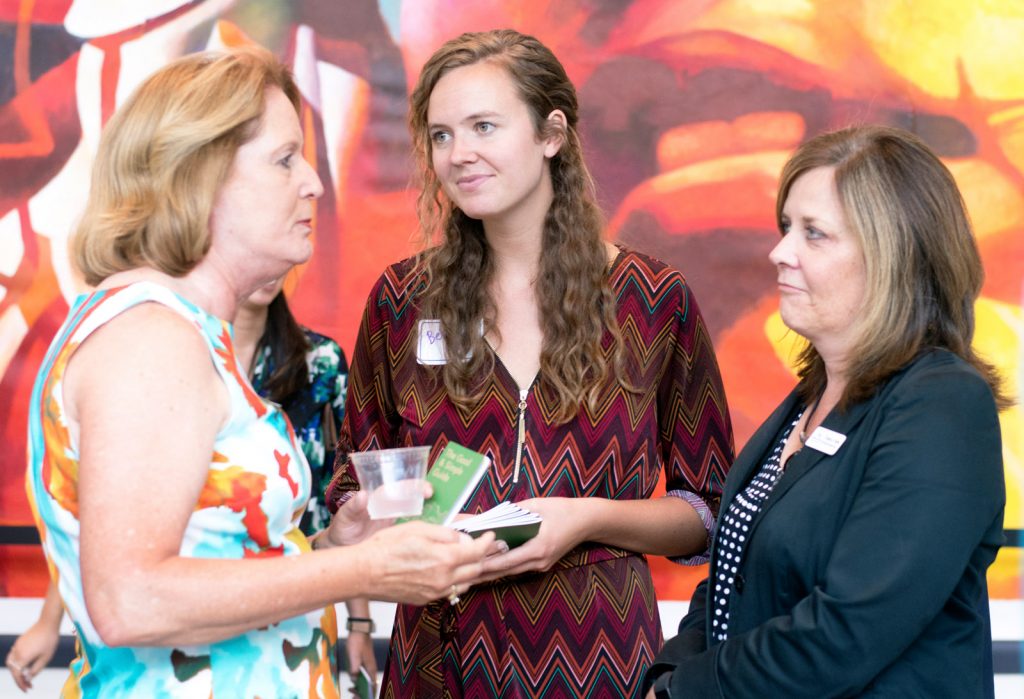
Quad Innovation Partnership and the Colorado Springs Chamber and EDC invited summer interns from both local and nationwide businesses to the Colorado Springs Fine Arts Center to learn more about the growth of Colorado Springs from Mayor John Suthers and Chamber members. Beka Adair ’16, assistant director of Quad Innovation Partnership, hosted the welcoming event, providing an opportunity for interns and CC students from the Quad’s summer intensive program to network and connect with other businesses.
Adair is the assistant director of Quad Innovation Partnership, her second full-time gig since graduating from CC as an economics major in 2016. Quad is a partnership between CC, Pikes Peak Community College, the University of Colorado-Colorado Springs, and the United States Air Force Academy that works to elevate, educate, and incubate innovators in Colorado Springs. Through community partnerships, Quad offers programs that support graduating innovators to build their careers “doing things that matter” in the Pikes Peak region.
“Senior year I got pretty involved in the community, working with many community organizations, and that kind of relationship-building is what takes you everywhere,” Adair says. “Every job I’ve gotten since my first internship at the Colorado Springs Chamber of Commerce has been because of some kind of relationship.” It’s what led her to her first full-time job with the Economic Development Corporation, and then with the Quad.
“Get plugged into the community,” she offers as advice to current students. “And building relationships with professors also helps.”
In order to enhance the connection between Colorado College and students’ post-college aspirations, CC is providing new opportunities for students to draw on the expertise of alumni, parents, and supporters to offer new forms of mentoring for students.
“It just speaks to the culture of CC: Alumni are kind and generous with their time and willing to help out,” says Abigail Censky ’18. Cultivating connections with alumni made a significant impact on the real-world experiences Censky gained not only as a student at CC, but also as she transitions to her professional career in journalism.
“Cold emailing has helped me tremendously, just looking for those CC connections and writing a message,” she says. “Two CC grads were extremely helpful, gave me advice, got back to me, and we had at-length phone conversations.” Censky says those relationships are not just about finding the next job or internship. She says the value of having professional mentors is huge, especially in her competitive field.
“It’s so important to build those relationships; for journalism specifically, it’s a field in which you owe everything to your mentors and the people who taught you,” she says. “Making connections and keeping those relationships going is incredibly helpful. They can be a sounding board regarding long-term career trajectory, sharing what they’ve learned is useful, what’s not. I found those mentor relationships really helpful.”
To build those relationships, students are connecting to the community, to alumni, and to career-related opportunities as they explore the post-CC journey. When Censky started pursuing options for her post-CC career, she was able to graduate with two years of journalism experience on her résumé thanks to the internships she’d completed throughout her time in college.
“I really was able to leverage the Block Plan to work part time at The Gazette, with class in the morning and afternoons open to work as a reporter gaining all of these experiences out in the field. I’ve always liked work more than school, so those opportunities gave me a much larger sense of purpose and allowed me to participate more in my education,” she says.
By working closely with the CC Career Center, Censky says she enhanced the level of professionalism and structure during each internship, providing clear expectations about her role and time to reflect at the completion of each position. She encourages current students to do the same, as it not only improved the quality of the experience, but also enabled her to earn college credit, along with skills that transferred to her résumé and career opportunities.
“At all of my internships, I’ve been really fortunate to be given a lot of responsibility,” she says. “Within my first month at [National Public Radio] they were sending me up to the Hill to go record people protesting for a story that would later be on ‘All Things Considered.’ I was working with Congressional and White House correspondents within my second week.” During her time as a reporting intern at The Colorado Springs Gazette, Censky’s byline appeared front page above the fold twice; and also appeared in the “Local & State” section every Sunday. Vince Bzdek ’82 is the editor of The Gazette.
The Career Center is constantly adjusting offerings and partnerships to provide students with experiences that meet their interests as well as the skills needed to transition into a career. Half Block offerings focused on professional skills and a symposium for rising seniors are a few of the ways CC is working to support students in a successful transition. A consulting and finance track was added for the 2018 symposium and was open to both sophomores and juniors. “We’ve had increasing student interest in finance and consulting,” says Megan Nicklaus, director of the Career Center. “Many of those industries have core schools from which they recruit, and our rising senior symposium helps our students make those important connections and determine how to make the most of the summer before their senior year.”
An internship following junior year helped Parker McVey ’18 secure his dream job in New York City. After studying abroad his entire junior year at the London School of Economics, he returned to the CC campus for his senior year.
“The markets have always fascinated me since I was in elementary school, so I’ve always known I wanted to end up in NYC,” he says. “And I also always knew I wanted to go to CC.” As Nicklaus mentioned earlier, McVey says he knew many financial firms recruit from specific universities, not smaller liberal arts schools like CC. McVey says he knew finding a job would be competitive and that he would have to leverage his small school, one with the unique Block Plan, illustrating why it would be beneficial to a future employer.
“CC gave me the opportunity to go to LSE and get that intensive, finance-specific education. What better way to prove my value than to have both CC and LSE listed on my résumé?” McVey also credits writing and communicating on the Block Plan with helping him develop skills he uses daily in his work: simplifying complex topics to many different audiences. Additionally, McVey gained valuable experience at an internship at Wold Energy Partners, headed by CEO Jack Wold ’75, a CC trustee, in Denver — an opportunity that came about via a CC connection. Following up on those connections is important.
“I was at the DU-CC hockey game and talked with one of the gift officers who gave me his card. I connected with him and he sent me contact information for the person who ended up being my future boss at my Wold internship, Court Wold ’06. I was primarily working on oil and gas financial modeling. That wasa really unique project that set me up well for my current job. I am an economics major from a small school and now I’m working for the 10th largest mining company in the world: Glencore,” he says of his post-CC path.
As part of preparing students for that post-CC transition, the CC Career Center is partnering with the Office of Financial Aid as it launches a new philosophy toward student employment. “We are focusing on professionalism and professional development for students and jobs on campus will mirror what students might experience when they apply for jobs or internships,” says Nicklaus. That means each job will include learning objectives and there will be an opportunity for assessment, to better understand what students are learning in these positions. The Career Center is also developing a professional development program for students; those who complete a certain number of courses will receive a certification.
More than 20 students took advantage of the A+ computer certification program offered as a pilot by the CC Office of Information Technology during the Spring Semester. During the 10-week A+ course, students learned to maintain, customize, and operate personal computers with the goal of passing with an A+ certification, an entry-level certification for PC computer service technicians. The certification helps participating students prepare to enter jobs in information technology and other industries; the course proves they have demonstrated advanced computer skills, setting them apart from other students. “It was a huge success,” says Tulio Wolford, solutions services manager, who led the course in its inaugural year. ITS will offer the A+ Software Certification again in Block 1.
Programs like CC’s Journalist- and Executive-in-Residence, Tiger Trek, and the Stratton Speaker Series provide opportunities for students to have one-on-one and small-group conversations with notable professionals in their fields of interest. And beginning to form relationships and glean knowledge from professionals about what they’ve learned and how they’ve succeeded helps students with their own transitions.
“I knew I wanted to apply to the NPR internship program and then found out the Career Center had created a partnership with NPR reporter and CC Journalist-in-Residence Peter Breslow,” says Censky. “CC students could apply for these extremely competitive internships in a much smaller application pool.” It’s an opportunity Censky says is “really, really special; it’s really rare that we would have that kind of tremendous opportunity.”
Due much in part to the schedule offered by the Block Plan, CC is able to bring in visiting faculty who offer students those kinds of unique interactions. Professionals are able to commit to three-and-a-half weeks at CC more easily than they could take a whole semester or academic year away from a job to lecture on campus. Censky says that’s a key difference about the CC experience. “These well-known, accomplished journalists or other professionals are here on campus. They’re able to then help me with specific questions and they’re responsive and available to us. That’s amazing.”
“The culture at CC is really different and that fosters a different learning environment where you can have a dialogue and individually express your opinion instead of being lectured at,” says McVey of the benefits of smaller classes and the rigor of the Block Plan.
Identifying what sets you apart from other applicants is a critical part of the CC-to-career transition, a sentiment expressed by both McVey and Censky. And it’s a place where alumni can step in to offer support.
“In any field, mentors are really important, but in journalism specifically, because things are so competitive,” Censky says. “Having people who know your name or someone to make a call when you send in an application, or get your résumé to the top of the pile, that is invaluable when 300-400 people are applying for the position.”
“I applied to 180 different jobs and internships and got three offers. It’s really competitive,” says McVey. “Stay in touch with people; you’re going to get a job from someone or they’ll put you in touch with someone.”
It’s a network that’s far-reaching and tapping into the CC connection could make all the difference: “When I applied for my current position at St. Louis Public Radio, that was leveraging CC connections,” describes Censky. “One of the students who edited at the Cipher with me had previously interned here. I just gave her a call, and she plugged my name in the newsroom, which was extremely helpful for me. CC is a small world, but you’d be surprised at how many webs it extends out into the real world.”
“CC alums are so generous when it comes to helping other CC students and graduates,” says McVey. “In my case, they knew that it’s rare to graduate from CC and go into finance and how much work that takes. The alumni network is incredible in that sense. Leaning on that is crucial and so beneficial.”
And the things that create beneficial connections in the job search can also translate to benefits for the broader community and help recent graduates determine how they can make an impact.
“Mine was really a passion to help people and be a part of the community,” Adair says. She encourages students to “find your underlying passion. Don’t get stuck on the exact solution right away; every job can have a piece of a dream job.”
In her current role, Adair now works closely with the CC Career Center to find participants for various projects. “There’s a lot going on right now in this community and here at the Quad, it’s exciting,” she says. “I’m directly working with many students from very diverse backgrounds who are collaborating to solve the community’s core issues. Right now we’re working on serious issues like affordable housing. We get to be a part of coming up with solutions.”
CC will soon be able to better understand why CC students are pursuing certain positions and why they’re seeking out specific communities and careers. Through the “First Destination Survey,” the Career Center can capture more robust information from students and will continue to collect information through the December after graduation, as current data shows students often don’t commit to their next steps until about six months after graduating. Surveying them at the time of graduation provides only a limited picture of graduates’ post-CC landscape.
“So far, we’ve been able to see that 99 percent of 2018 graduates are satisfied with their outcomes,” says Nicklaus. “We also want to know what opportunities students are pursuing post-CC, what experiences have they had that led them down that path? We can look at their internships and majors and knowing that they’re satisfied is helpful. Right now, we’re looking at 2018 graduates’ data, and we will determine what areas we can focus on for the coming academic year.”
CC’s strategic initiative to cultivate more significant connections to assist students in their transition from CC also includes encouraging and supporting faculty as they engage students in their professional communities of practice, including them in professional debates and gatherings. The college is also working to expand support for students who pursue national post-graduate scholarships and fellowships.
The Career Center has just launched a new platform, Handshake, that will more easily help students make connections related to professional skills, interests, networking, and other programming. As students express interest in different types of industries, the system will feed them information about those opportunities; students can look for other students who have the same interests and see what classes, internships, and clubs they’ve participated in.
“It’s a way students will see a few different connections: being able to connect student employment to what they’re learning in the classroom, connecting to career interests and what skills they’re learning, and how those experiences are connected to their next transition,” says Nicklaus.
Discover More Online
